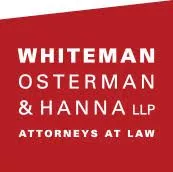- in United States
- within Tax topic(s)
The Employee Retention Credit (ERC), a refundable payroll tax credit enacted through the CARES Act, was a lifeline for many businesses during the COVID-19 pandemic. While a valuable relief measure, its complexities and the aggressive marketing tactics of unscrupulous ERC advisors led to a surge of improper claims. The IRS has significantly stepped up its enforcement efforts, introducing new provisions to address fraudulent claims and protect the integrity of the program. The "One Big Beautiful Bill Act" (OBBBA), signed into law on July 4, 2025, provides for new enforcement rules.
The Evolution of the ERC
Initially, for the 2020 tax year, the ERC allowed eligible employers to claim a credit equal to 50% of qualified wages paid between March 12, 2020, and January 1, 2021, with a maximum credit of $5,000 per employee. Eligibility hinged on experiencing a full or partial suspension of operations or a significant decline in gross receipts.
The credit was later expanded for 2021, increasing the rate to 70% of qualified wages and adjusting the per-employee creditable wage limit to $10,000 per quarter. The eligibility criteria for gross receipts also became less stringent. The ERC was ultimately terminated for most employers beginning with the fourth quarter of 2021, though recovery startup businesses remained eligible through December 31, 2021.
The Rise of Improper Claims and IRS Warnings
The deadlines for claiming the ERC for 2020 and 2021 tax periods were April 15, 2024, and April 15, 2025, respectively. However, the IRS repeatedly warned businesses about "predatory ERC marketers" who aggressively advertised their services without verifying actual eligibility, leading to a significant increase in improper claims.
This prompted the IRS to pause the processing of new ERC claims on September 14, 2023. While processing resumed for claims filed between September 14, 2023, and January 31, 2024, the agency's focus has shifted towards heightened scrutiny and enforcement.
New Enforcement Provisions under the OBBBA
1. Penalties for COVID-ERTC Promoters:
The OBBBA imposes substantial penalties on any "COVID-ERTC promoter" who aids or advises on COVID-ERTC documents and fails to meet due diligence requirements. A promoter now faces a $1,000 penalty per failure. This penalty applies to documents related to tax returns or refund claims.
The OBBBA specifically defines a COVID-ERTC Promoter as any person providing aid, assistance, or advice on COVID-ERTC documents, and meeting one of these criteria:
- Their fee is based on the amount of the credit/refund, and COVID-ERTC work constitutes more than 20% of their gross receipts in the current or prior year;
- COVID-ERTC work makes up more than 50% of their gross receipts; or
- COVID-ERTC work is more than 20% of gross receipts, and their aggregate gross receipts exceed $500,000.
It's important to note that Certified Professional Employer Organizations (CPEOs) are exempt from being classified as COVID-ERTC Promoters. Additionally, persons treated as a single employer by the IRS are treated as a single employer for these provisions.
2. Limitation on New ERC Claims:
The OBBBA limits the availability of new ERC credits or refunds after its enactment date, unless the claim was filed before February 1, 2024. This effectively shuts the door on new claims for most employers, further emphasizing the IRS's push to conclude the program.
3. Extended Statute of Limitations for Assessments:
To give the IRS more time to identify and address improper claims, the OBBBA extends the limitation period for assessing any amount related to ERC credits to six years from the latest of:
- The date the original return, including the calendar quarter for which the credit is determined, was filed;
- The date the return is treated as filed; and
- The date a claim for credit or refund is made.
This significantly extends the IRS's ability to audit and disallow improper claims, even those already paid out. Correspondingly, the period to claim deductions for wages improperly claimed for ERC is also extended to match this assessment period.
4. Expanded Penalty for Erroneous Claims:
Finally, the OBBBA broadens the scope of the penalty for erroneous claims for refund or credit to specifically cover employment tax, not just income tax. This means that employers who incorrectly claim the ERC could face a 20% penalty on the excessive amount claimed, in addition to repayment of the credit and interest.
What This Means for Businesses and Professionals
These new enforcement provisions send a clear message: the IRS is serious about cracking down on improper ERC claims. For businesses that claimed the ERC, it's more crucial than ever to ensure all documentation supporting their eligibility and credit calculation is robust and accurate.
For tax professionals and advisors, the heightened due diligence requirements and broadened definition of "COVID-ERTC promoter" underscore the need for extreme caution and adherence to ethical standards when assisting clients with ERC matters. Failing to do so could result in significant penalties.
The era of the Employee Retention Credit may be drawing to a close, but the IRS's enforcement efforts are just beginning. Understanding these new provisions is paramount for navigating the post-ERC landscape responsibly.
The content of this article is intended to provide a general guide to the subject matter. Specialist advice should be sought about your specific circumstances.


